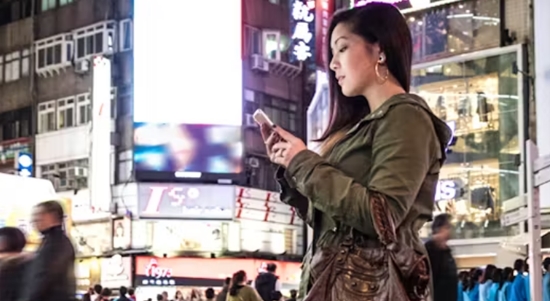
A billion? That’s the number Statista.com gives: as of 2022, a little more than a billion users of social media in China. Even if the estimate is too generous, there are probably at least several hundred million users of social media in the country.
The Chinese Communist Party works hard to control what all these people see and say.
Spring cleaning
The CCP relies on various technological and personal methods to try to do so. One is its regular Qinglang (spring-cleaning) campaigns to clean up what the government regards as trashy or immoral expressions of speech. (Certain categories of trashy and immoral speech are not targeted, however; for example, authorized CCP propaganda.)
The Conversation reports that the target of a recent two-month crackdown, just now winding up, is “wealth-flaunting,” the sort of thing that many may regard as vulgar in freer societies but that is not on that account subject to official penalty there. In the United States and elsewhere, the 80s-era syndicated American TV series “Lifestyles of the Rich and Famous” was in no danger of being outlawed, even if it did offend the sensibilities or provoke the envy of those less inclined or able to luxuriate than the celebrities who earned Robin Leach’s gushing attention (“China’s crackdown on ‘wealth-flaunting’ social media puts pressure on influencers—both on the mainland and in Taiwan—to echo the party line,” June 24, 2024).
Launched on April 23, 2024, by the Cyberspace Administration of China, the latest Qinglang campaign…aims to penalize Chinese social media influencers and internet celebrities deemed to be flaunting wealth or deliberately showcasing a luxurious life built on money to attract followers and traffic. Its reach goes beyond the behavior of social media users on the mainland, with Taiwanese influencers feeling the heat, too.
Following the Cyberspace Administration of China’s directive, various Chinese social media platforms blocked the accounts of influencers such as Wang Hongquanxing, who has earned the nickname “China’s Kim Kardashian.”
Wang appears to have been censored for bragging about his extravagant clothing and other luxury goods. And he isn’t alone. Fellow influencer Bo Gongzi received similar treatment for showing off Porsche cars, Hermes bags and other rare and expensive accessories. And Baoyu Jiajie disappeared from Chinese social media platforms after flaunting her luxurious cuisine and lavish properties.
Chinese official media defended the crackdown as a move against money worshipping and what Beijing describes as “toxic traffic”—or attracting online fans for the purposes of making money.
Bragging about Porsches and Hermes bags may be offensive—it depends on how you brag, tastefully and tastelessly being the two main options—but, obviously, and contra socialist and egalitarian ideology and the Chinese Communist Party, there is everything right and nothing wrong with earning an honest dollar or yuan. Even lots of dollars or yuan, including by “attracting online fans” by providing them with vicarious pleasures. Making money by making things that help people survive and enjoy life is good. It is better to be alive than not, and fun things are better than dreary things.
Amplify or subvert
But the CCP, party pooper par excellence, needs to control. One of the things it needs to control is the message. And “if regulated tightly, social media can be used to amplify its message; but if left unchecked, it could result in an increasingly subversive and chaotic cyberspace.”





